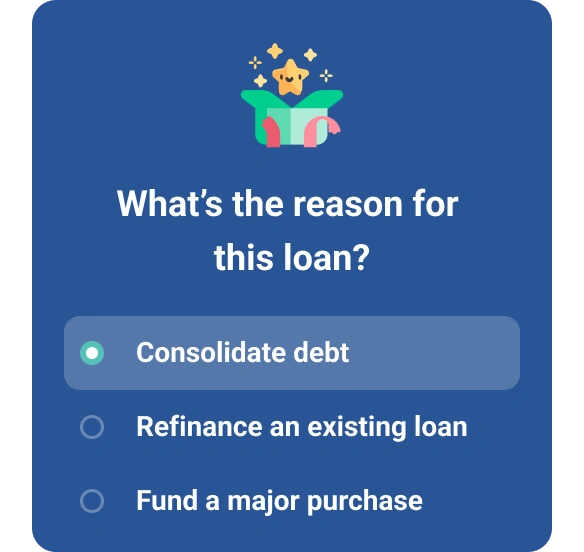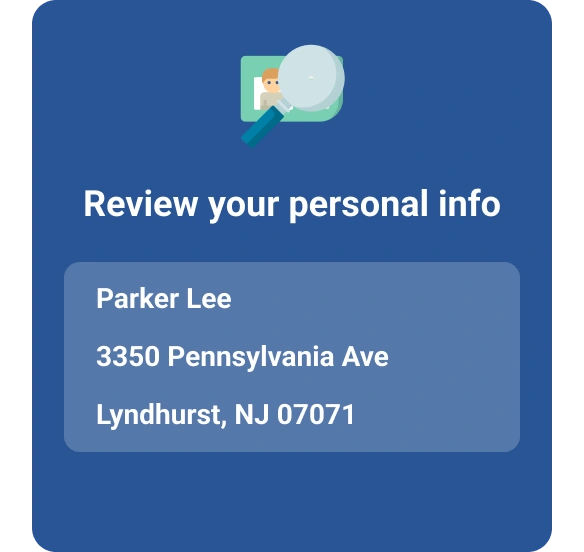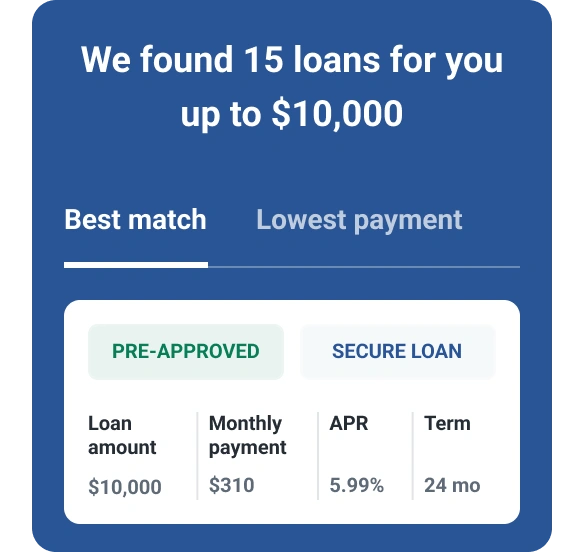Can I Get a Debt Consolidation Loan With a 600 Credit Score?
Quick Answer
There are lenders out there willing to offer personal loans to borrowers with a credit score of 600 or below. But with higher interest rates and fees, you may end up paying more for your debt in the long run.

A debt consolidation loan is another term for a personal loan used to consolidate credit card and other debts. It may be possible to obtain a personal loan with a 600 credit score with certain lenders. But depending on the situation, it may end up increasing your costs instead of saving you money.
Can You Get a Debt Consolidation Loan With Bad Credit?
A 600 credit score is still considered "fair," so it may be possible to get a debt consolidation loan. In fact, there are often lenders that are willing to even work with borrowers with bad credit (considered a score of under 580).
In the right situation, a debt consolidation loan can help you save money, particularly if you want to pay off credit card debt. The average interest rate on a two-year personal loan is 9.41%, according to the Federal Reserve; in contrast, the average rate on a credit card is 16.17%.
You can also benefit from the structured repayment plan of a consolidation loan instead of a minimum monthly payment and potentially no end in sight on a credit card.
That said, with a 600 credit score, you may run into some problems with such a loan, including:
- Higher interest rates
- Expensive origination fees
- Fewer lender options
- Potential denial
How to Get a Debt Consolidation Loan
If you're thinking about getting a consolidation loan to help pay down high-interest debt, here are some steps you can take to achieve your goal and save as much money as possible:
- Check your credit score. You can check your score for free from Experian to see where you stand and whether you can make some improvements before you apply. Even if your score is 600, the higher you can get it before you submit an application, the better your chances of getting a low enough interest rate to make consolidation worth it.
- Shop around. You'll want to compare at least three lenders and maybe more to ensure you're getting the best deal. Many personal loan lenders allow you to get prequalified without a hard inquiry on your credit reports. You can even use Experian to view loan offers from multiple lenders at once based on your credit profile. In addition to the interest rate, you'll also want to look at the origination, repayment term, monthly payment and any other features that are important to you.
- Pick a lender and apply. Once you've decided which offer is best for you, you can apply with that lender directly through its website. You'll typically provide some basic information about yourself and how much you want to borrow. In some cases, you may be required to provide documentation for your income, identity and other details.
- Agree and sign the loan documents. If the lender approves your application, you'll receive a final offer, which may or may not be the same as the initial quote you received. If you agree, read the loan documents to make sure you don't miss anything, and sign them electronically.
- Pay off your debt. While some lenders will pay off your credit card debt directly, others may disburse the money to you instead. Either way, make sure your old debts are paid off before you stop making payments. Then, set up automatic payments on your new loan to ensure you pay on time going forward.
Is a Debt Consolidation Loan Right for You?
Debt consolidation isn't right for everyone, especially if your credit score needs some work. Here are some situations where debt consolidation may be right for you:
- It can save you money. If the debt you're hoping to pay off has a higher interest rate than the new loan, consolidating could ultimately save you money.
- You can afford the new payment. Many people want to consolidate to get out of the minimum payment trap of a credit card. But you'll want to make sure that you can afford the monthly payment on the new loan without putting too much strain on your budget.
- You have a cosigner. It can be challenging to secure a low enough interest rate on your own with a 600 credit score to make consolidation worth it. But if you have a creditworthy cosigner and can find a lender that allows them to apply with you, it could help you achieve your goal.
On the flip side, there are some situations where it might not make sense to get a consolidation loan:
- You don't plan on changing your spending. If you're trying to pay off credit card debt, it's crucial that you stop using your cards while you pay down your new balance to avoid making matters worse. If you don't have concrete plans for limiting your spending, you could end up in more trouble than when you started.
- Your debt balances are relatively low. If you can pay off your debt within the next year, the cost of a personal loan origination fee may not be worth it. Consider using a different debt payoff plan instead.
- You can't get a low enough interest rate. If you compare quotes and can't find a lower interest rate than what you're already paying, consider taking time to improve your credit score before you apply.
The Bottom Line
If you decide that debt consolidation isn't right for you, you may consider one of the following alternatives:
- A loan from a family member or friend
- A home equity loan or line of credit, if you own your home
- The debt snowball or avalanche payoff method
- A debt management plan established by a credit counselor.
Take your time to seriously consider all of your options before you decide how to proceed with paying off your debt.
Need a personal loan?
Whether you're looking to eliminate debt or access cash fast, compare personal loan offers matched to your credit profile.
Start now for freeAbout the author
Ben Luthi has worked in financial planning, banking and auto finance, and writes about all aspects of money. His work has appeared in Time, Success, USA Today, Credit Karma, NerdWallet, Wirecutter and more.
Read more from Ben

